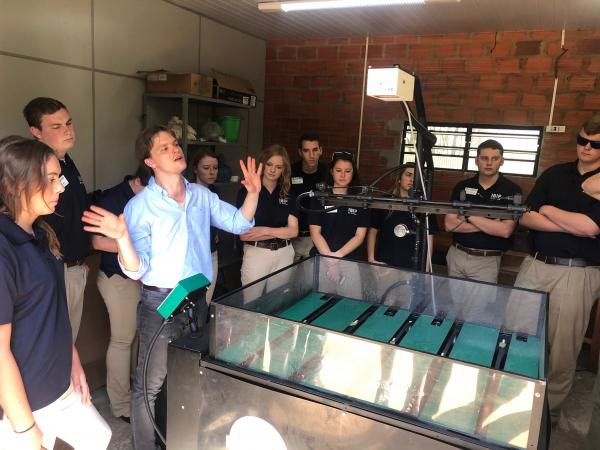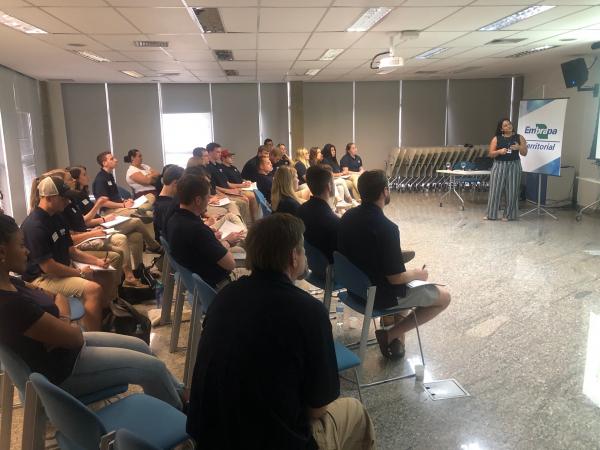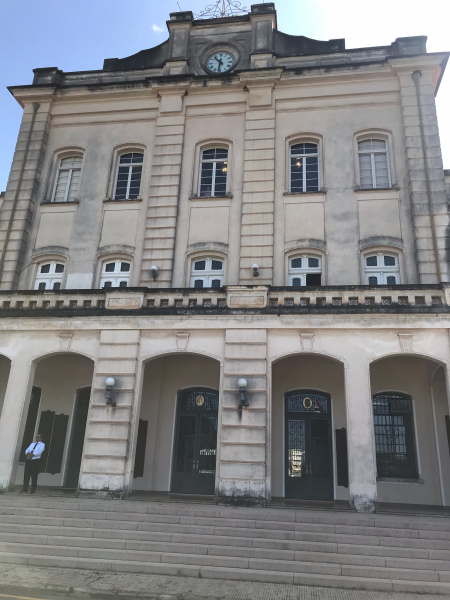IBIP to USP and Embrapa

Today we went to the University of São Paulo Luiz de Queiroz College of Agriculture (ESALQ) to attend a lecture from Marcos Ferraz about precision agriculture in the Bio Systems Engineering Department. During the lecture, we learned about various precision agriculture techniques such as real time AI decision making, remote sensing, and high-resolution soil data collection.
These technologies are used to save producers time and money, while increasing farm productivity. After the lecture, we went on a quick tour of the school and spent some time walking around their main building where we saw pictures of past graduates and beautiful stained glass windows. This was especially interesting because a founder of the College of ACES at University of Illinois also helped found ESALQ - because of this, the schools had a very similar look during the tour. We then had the opportunity to go to the school’s experimental farm and tour SmartAgri, a startup company that is creating solutions in precision agriculture. Fortunately, Marcos was able to show us some of the projects he has been working on including a machine that differentiates plants by height and a machine that detects weeds through a sensor in order to minimize herbicide use.
After eating a delicious buffet lunch, we ended our day by visiting Embrapa. Embrapa is an agricultural research agency that is responsible for Brazil's agricultural revolution. At Embrapa we were able to hear from Dr. Lucíola Alves Magalhães, a prominent character in Embrapa Territorial Management. We learned about Embrapa, who they are, what they do, and a lot about the statistics of Brazil and its preserved land. Most of the meeting surrounded the concerns and synergies between agricultural development and environmental protection. At the end of the meeting, two students were even able to do a short interview with Embrapa for the Ministry of Agriculture.
Overall, our busy day was insightful to what the future of agriculture looks like. It is interesting to think that one day, maybe even sooner than later, farmers will not have to physically operate machinery. Our trip has been extremely rewarding thus far because of the exposure we have had to a variety of different disciplines and speakers. These were some of the most interesting facts we learned today:
- 66.3% of land in Brazil is protected area. However, the type and quality of protection varies.
- Brazil is the number 1 exporter of various commodities such as coffee, sugar, beef, oranges and several more.
- Brazil is the number 1 user of fertilizer in the world.
We’re very grateful to have Campus b coordinators on this trip with us. Georgia and Talita are full of information, helpful, and very easy to talk to. Our trip has been a huge success so far and it is very much due to their hard work and generosity.

